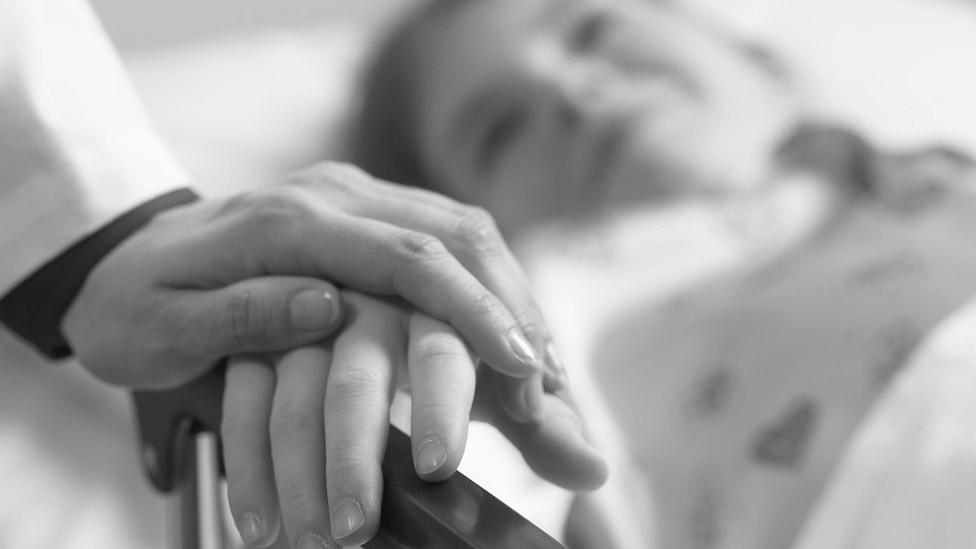'Disgraceful' NHS barriers facing Gypsies and travellers
- Published

Gypsies and travellers are facing barriers to accessing health care in Wales due to discrimination, .
A pregnant traveller, 18, said she was put in a ward on her own and not allowed visitors, as "she was a Gypsy".
It was one account uncovered in a study into Gypsy and travellers' experiences of the Welsh NHS.
Health Secretary Vaughan Gething said there were "real challenges" and more needed to be done.
Chairwoman of the assembly's Gypsy and Traveller Committee Labour AM Julie Morgan said the discrimination was an "absolute disgrace".
According to the last official count over 900 Gypsy and traveller families live in caravans across Wales, .
In what is thought to be the first survey of its kind in Europe, about 100 Gypsies and travellers were interviewed by community champions as part of the study, between April 2016 and March 2017.
Travellers spoke of difficulties accessing GP services, claiming they faced discrimination from receptionists and barriers filling in registration forms as many are illiterate.
A distrust of dentists also led to children saying they had needed to have between 10 and 20 rotten teeth removed.
Report author Dr Adrian Marsh said while some GPs gave travellers prescriptions for during the summer period, when they travel to festivals and cultural events, others did not.
He said large numbers of visitors descending on hospital wards during visiting hours often created tensions and lead to conflict.
Some evidence of good practice especially in north Wales were also highlighted in the report.
Speaking at the report's launch at the Pierhead in Cardiff Mrs Morgan said the experiences of the community were often "very negative" and people were nervous of seeking help.
She said she hoped the report could be a blueprint for improving services for a community which was "one of the most stigmatised" in Wales.
"It's very shocking to hear some of the ways people have been treated in the health service," she said.
"There have been very good examples, very good relationships with district nurses, with GPs, but also a lot of stories of discrimination; difficulties getting access to the health service, ways people had been treated, stigma, and this really illustrates it, and it is really something we have got to tackle."
Mr Gething said the Welsh Government was working in partnership with health boards to improve access to NHS services for communities.
"I know we are not a perfect country but I do think we are doing the right thing to make sure there is equality," he said.
- Published27 July 2016
- Published27 March 2016
- Published26 March 2014